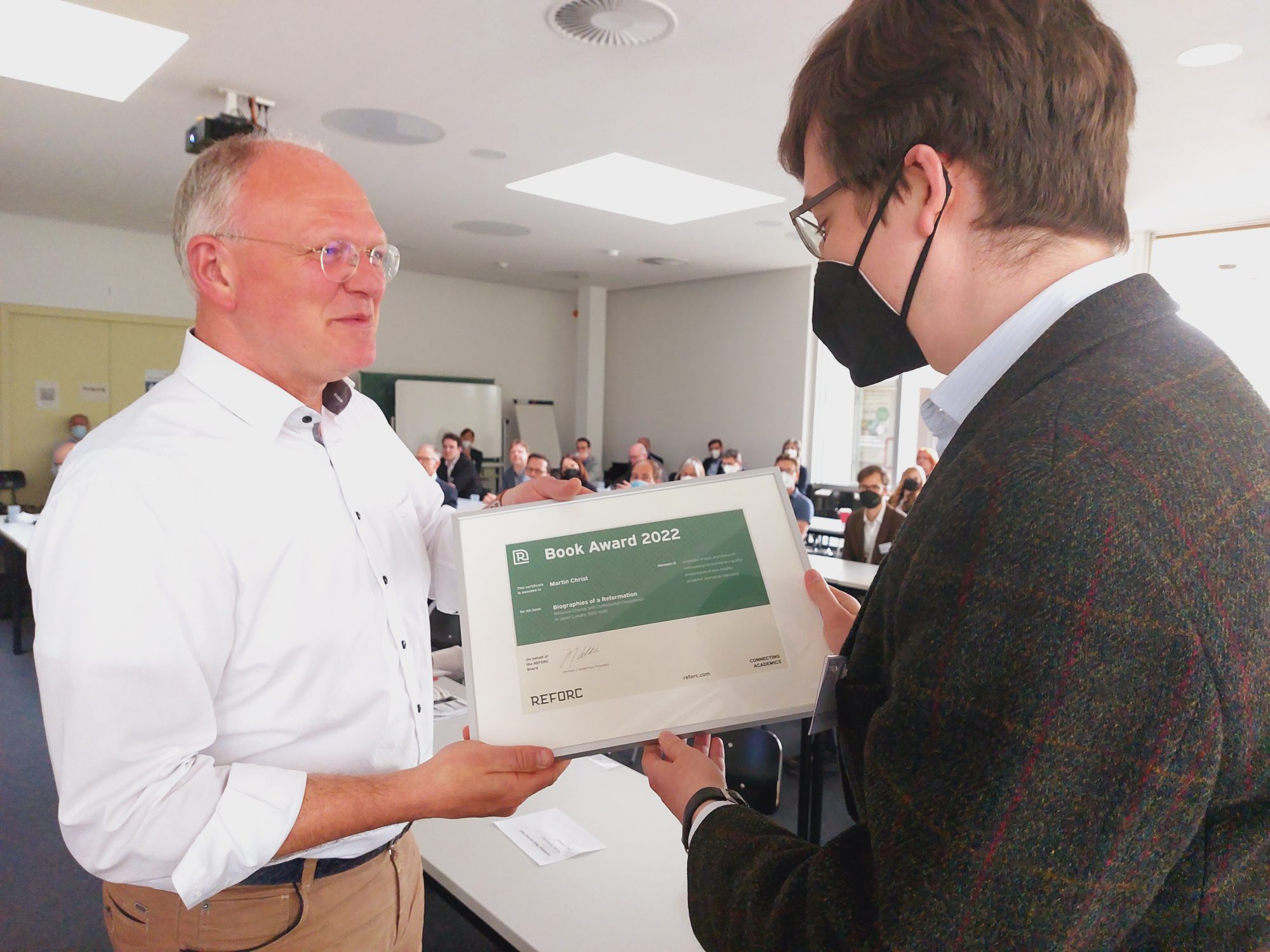05 May 2022
The REFORC Book Award 2022 was won by Martin Christ for his book Biographies of a Reformation. Religious Change and Confessional Coexistence in Upper Lusatia, 1520-1635, published by Oxford University Press, 2021.

The winner was announced during the Eleventh Annual REFORC Conference on Early Modern Christianity, whereby the award was handed to him. We spoke to award winner Martin Christ, and asked him some questions.
I first became interested in Reformation history during my undergraduate studies at the University of Warwick, where I carried out a small project on the failure of the Reformation in Schwäbisch Gmünd. Since then, I continued work in this area, first at the University of St Andrews, where I worked on the council annals of Johannes Hass from Görlitz. At Oxford, I pursued this research interest further during my PhD and the monograph is primarily based on this doctoral research. During this time, I also spent a very stimulating year at the University of Dresden for archival research. In the later stages of writing the monograph, I also benefitted from a teaching fellowship at the University of Tübingen and discussions in the KFG “Religion and Urbanity: Reciprocal formations” at the University of Erfurt, where I am still based.
My interest in Central Europe, and Upper Lusatia especially, started during the research for my Masters thesis and has grown ever since. Partly, this was a reaction to the focus of much Anglophone Reformation scholarship on southern Germany and the Swiss Confederacy. I think that an expansion of the geographical scope to central and eastern Europe can immensely expand our understanding of the early modern world. Linked to this, is the availability of source material in many archives of former East Germany, Poland and the Czech Republic that has not been studied sufficiently. For example, there is now a significant body of scholarship on Görlitz, which recognizes the wealth of its archival material. But also for the smaller towns, much remains to be done. In Lauban (today called Lubań), there are chronicles, council minutes and other records that remain understudied. Finally, those who worked on central Europe before me, in the UK, Germany, the Czech Republic and US, encouraged me to pursue this research further, and I am very grateful to the colleagues and friends whose work has been so inspirational and who shared time, knowledge and resources with me.
One of the most striking discoveries for me was the importance of paying close attention to individual historical actors, which is why I decided to structure my monograph around these individuals. I was surprised again and again at the possibilities individuals had when negotiating their religiosity and the ways in which they found creative solutions to theological and political problems. In my opinion, many of them were aware of the differences between various Christian groups, so their willingness and ability to find individualistic answers to what was undoubtedly an area of profound change was not indifference or coincidental. Many of them combined aspects of different beliefs in syncretistic ways to make sense of a changing world.
With the usual caveat that it is difficult to project from the past to the present, I think I would link this to my previous answer. Co-existence between different confessional and religious groups continues to be fraught and difficult, but also shows that seemingly incompatible belief systems can actually work together. So I think that a certain degree of flexibility and creativity is crucial for the functioning of co-existence. In many instances, this can be on an individual rather than institutional level, but the ability of people to make sense of various belief systems, which at first glance may be mutually exclusive, is truly fascinating and continues to resonate today.
Thank you for this interview, Martin!